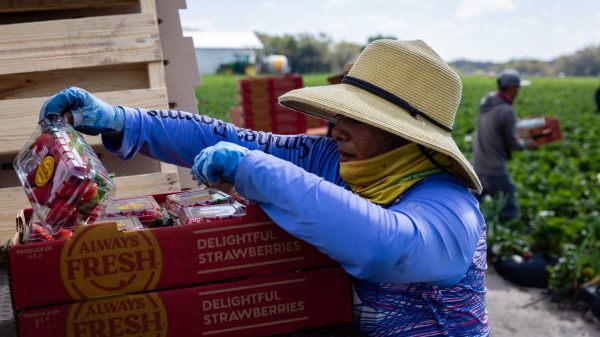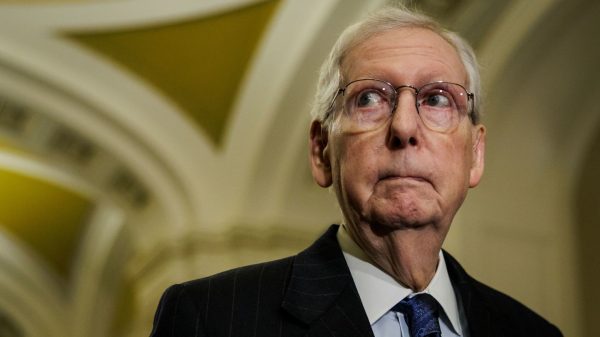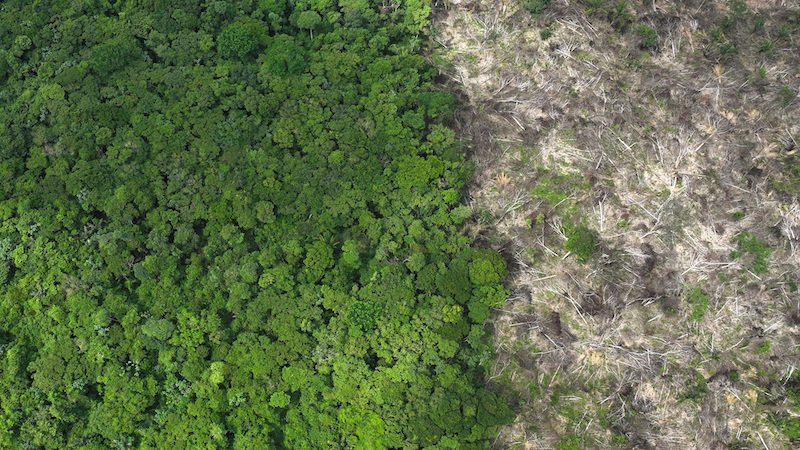Tropical forests endured persistent and alarming rates of disappearance last year, severely impeding global efforts to halt deforestation by 2030, according to recent research.
A staggering equivalent of ten football pitches of tropical forests, totaling 3.7 million hectares, vanished every minute in 2023 due to both human activities and natural calamities, as analyzed by Global Forest Watch.
Despite significant declines in forest destruction in Brazil and Colombia, this progress was counteracted by substantial increases in deforestation rates in Bolivia, Nicaragua, and Laos.
“The world experienced a mixed bag in terms of forest loss last year,” remarked Mikaela Weisse, Director of Global Forest Watch at the World Resources Institute (WRI).
Tropical forests serve as crucial buffers against global warming by absorbing greenhouse gases. However, they are also the primary locations where over 96% of human-induced deforestation occurs worldwide, as noted by WRI.
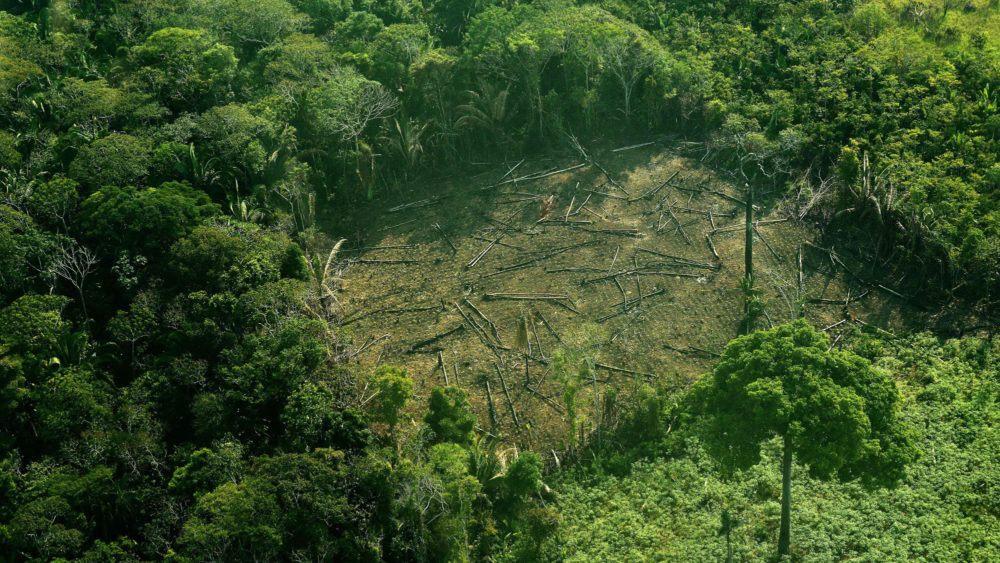
Forest Protection Target Off Course: Two Steps Forward, Two Steps Back for Governments (Credits: YALE E360)
Falling Short of Targets
While overall tree loss in the tropics witnessed a slight decrease last year, analysts estimated that human-driven deforestation, propelled by agriculture, commodities extraction, and urban expansion, continued to rise.
This trend persists despite the necessity of a 10% reduction every year to meet the commitment made by 145 nations, including major forest nations like Brazil, Indonesia, and the Democratic Republic of Congo, to “halt and reverse forest loss and land degradation by 2030.”
Initially introduced as a voluntary commitment at COP26 in Glasgow, the target was formally acknowledged for the first time in a COP decision during the climate summit in Dubai last December.
Weisse acknowledged the ambitious nature of the goal, noting the challenges in achieving sufficient progress from all countries to meet the target.
“I still find hope in the significant efforts made by Brazil, Colombia, and Indonesia to curb their rates of forest loss in recent years,” she added. “These countries have demonstrated the critical role of strong political will in combating deforestation.”
Lula’s Efforts in Brazil
Brazil, owing to its vast rainforests, continued to lead in tropical forest loss in 2023. However, its losses decreased by more than a third last year, marking the lowest level since 2015.
This progress coincided with the tenure of President Luiz Lula da Silva, who intensified law enforcement against illegal logging, repealed anti-environmental measures introduced by his predecessor, Jair Bolsonaro, and extended Indigenous rights.
Brazil aims to prioritize forest protection at its climate summit in 2025, which will be held in Belém, known as the gateway to the Amazon rainforest.
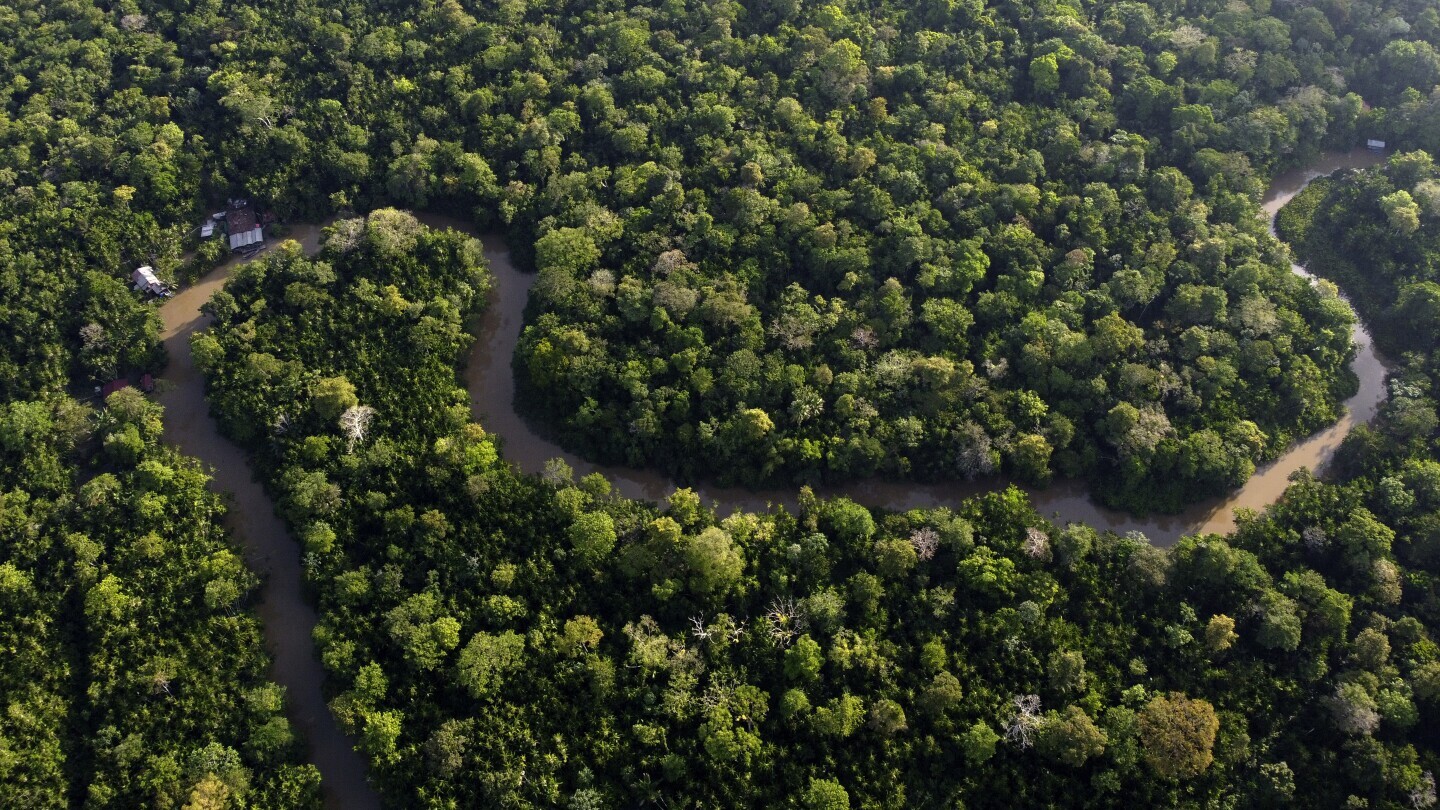
Forest Protection Target Off Course: Two Steps Forward, Two Steps Back for Governments (Credits: AP News)
“Holding COP30 in the heart of the forest serves as a poignant reminder of our responsibility to achieve our 1.5°C target,” remarked Marina Silva, Minister for the Environment and Climate Change, last December.
In neighboring Colombia, tree loss rates halved in 2023, primarily due to policies implemented by President Gustavo Petro.
Forest protection is among the objectives being negotiated by the leftist government with armed groups as part of broader efforts to achieve “total peace” and end decades of violence.
Experts have suggested that criminal groups may have curbed illegal logging to bolster their position in the negotiations.
Setbacks in Progress
However, the positive strides made in forest conservation in Brazil and Colombia have been offset by spiraling deforestation rates elsewhere.
In Bolivia, forest losses remained at record levels for the third consecutive year, driven by uncontrolled expansion of soybean and beef production, aggravated by severe wildfires.
The Bolivian government, prioritizing development and agricultural exports over forest protection, has not committed to the 2030 pledge.
During the Amazon Summit last year, Bolivia clashed with Brazil, opposing any references to the target in the outcome document signed by leaders of eight countries.
Dramatic increases in deforestation were also observed in Nicaragua in Central America and Laos in Southeast Asia last year.
Nicaragua lost over 4% of its standing forest in 2023 alone, as the authoritarian regime of Daniel Ortega turned a blind eye to illegal logging.
The disregard for forest preservation and Indigenous rights is hindering the country’s access to international financial support.
The UN’s Green Climate Fund withdrew from a forest conservation project last month following complaints from local community groups about insufficient protection amidst escalating human rights violations.
In Laos, forest loss nearly doubled last year, reaching an all-time high, driven by rapid farming expansion, primarily led by Chinese investments.
Beyond Political Will
Weisse emphasized that while the cases of Brazil and Colombia underscore the importance of political will in reversing deforestation, it alone will not suffice.
“Political winds are ever-changing,” she added. “Ensuring enduring progress in any of these countries will likely require making it more beneficial to preserve forests than to exploit them.”
Carbon credits have long been advocated as a primary mechanism to achieve this, but their credibility has been questioned amid allegations of overstated climate benefits and inadequate protection of local communities. Efforts are underway to strengthen their regulations.
Demand-side regulations are also being introduced, barring goods produced on deforested land from accessing markets.
In the European Union, firms will soon have to prove that seven commodities, including beef and soy, are not associated with deforestation. Commodities-producing countries like Indonesia have criticized these regulations as protectionist.



